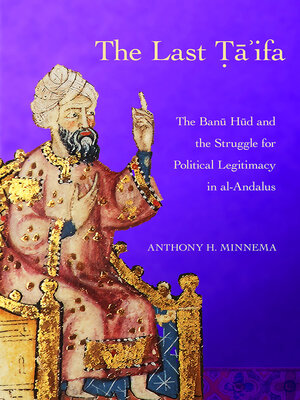The Last Ta'ifa
ebook ∣ The Banu Hud and the Struggle for Political Legitimacy in al-Andalus · Medieval Societies, Religions, and Cultures
By Anthony H. Minnema

Sign up to save your library
With an OverDrive account, you can save your favorite libraries for at-a-glance information about availability. Find out more about OverDrive accounts.
Find this title in Libby, the library reading app by OverDrive.



Search for a digital library with this title
Title found at these libraries:
| Library Name | Distance |
|---|---|
| Loading... |
In The Last Ta'ifa, Anthony H. Minnema shows how the Banu Hud, an Arab dynasty from Zaragoza, created and recreated their vision of an autonomous city-state (ta'ifa) in ways that reveal changes to legitimating strategies in al-Andalus and across the Mediterranean. In 1110, the Banu Hud lost control of their emirate in the north of Iberia and entered exile, ending their century-long rule. But far from accepting their fate, the dynasty adapted by serving Christian kings, nurturing rebellions, and carving out a new state in Murcia to recover, maintain, and grow their power. By tracing the Banu Hud across chronicles, charters, and coinage, Minnema shows how dynastic leaders borrowed their rivals' claims and symbols and engaged in similar types of military campaigns and complex alliances in an effort to cultivate authority.
Drawing on Arabic, Latin, and vernacular sources, The Last Ta'ifa uses the history of the Banu Hud to connect the pursuit of legitimacy in al-Andalus to the politics of other emerging kingdoms and emirates. The actions of Hudid leaders, Minnema shows, echoed across the region as other kings, rebels, and adventurers employed parallel methods to gain power and resist the forces of centralization, highlighting the constructed nature of legitimacy in al-Andalus and the Mediterranean.







